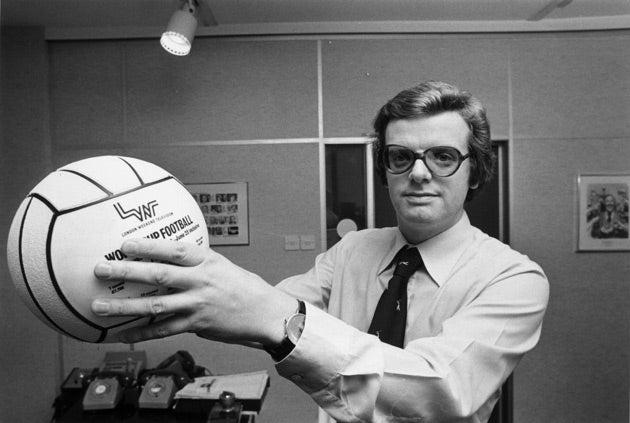Michael Grade: A man whose timing, for once, let him down

Your support helps us to tell the story
From reproductive rights to climate change to Big Tech, The Independent is on the ground when the story is developing. Whether it's investigating the financials of Elon Musk's pro-Trump PAC or producing our latest documentary, 'The A Word', which shines a light on the American women fighting for reproductive rights, we know how important it is to parse out the facts from the messaging.
At such a critical moment in US history, we need reporters on the ground. Your donation allows us to keep sending journalists to speak to both sides of the story.
The Independent is trusted by Americans across the entire political spectrum. And unlike many other quality news outlets, we choose not to lock Americans out of our reporting and analysis with paywalls. We believe quality journalism should be available to everyone, paid for by those who can afford it.
Your support makes all the difference.As a master of the comic one-liner and the well-honed anecdote, Michael Grade knows better than anybody that timing is everything. As he looks back on his time as executive chairman, he might well reflect that timing, on this occasion, let him down.
When he arrived at ITV in January 2007, Grade could not have imagined the challenges that lay ahead. Although on-screen performance has steadily improved, the scale and speed of the economic downturn has laid waste to his turnaround plans. His natural optimism, his preference for growth and ambition, have given way to retrenchment, cost-cutting and disposals, with confirmation of the decision to sell SDN confirmed yesterday.
Regulatory relief has become a cornerstone of his strategy. Hardly the in-tray that television's consummate showman would have wanted or expected.
Steeped as he is in showbusiness, the story of Susan Boyle will have struck him as another interesting, if unexpected, piece of timing.
In Britain's Got Talent ITV has precisely what it needs: a channel-defining, break-out, hit show. But for Grade, life at ITV could never be so simple. ITV plc does not own the show, and cannot benefit from the international revenues it generates. Its production arm does not produce it, nor is it filmed in its studios. The 100 million people who have viewed Susan Boyle on YouTube do so for free, highlighting ITV's difficulty translating online viewers into paying customers.
Worse still, the ability of ITV's sale house to charge advertisers a significant premium for delivering a television audience of 12 million is constrained by a complex airtime pricing mechanism, CRR, dating from the Granada-Carlton merger. So, the unlikely figure of Susan Boyle highlights many of ITV's biggest and continuing challenges: the creation and ownership of global hits, the ability to make money online and the shackles of regulation.
Grade has identified a further challenge – the escalating cost of talent – with Simon Cowell, the show's creator and star, firmly in his sights. Cowell has reportedly indicated he may be prepared to share the pain with ITV, and accept a reduced fee. If so, the new CEO of ITV may benefit. And, who knows, by then, economic green shoots may finally be established.
Simon Shaps is a former director of television at ITV
Join our commenting forum
Join thought-provoking conversations, follow other Independent readers and see their replies
Comments